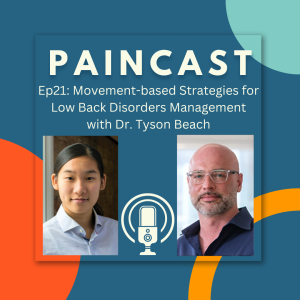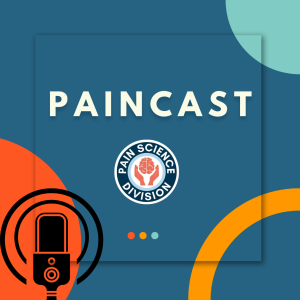
- Podcast Features
-
Monetization
-
Ads Marketplace
Join Ads Marketplace to earn through podcast sponsorships.
-
PodAds
Manage your ads with dynamic ad insertion capability.
-
Apple Podcasts Subscriptions Integration
Monetize with Apple Podcasts Subscriptions via Podbean.
-
Live Streaming
Earn rewards and recurring income from Fan Club membership.
-
Ads Marketplace
- Podbean App
-
Help and Support
-
Help Center
Get the answers and support you need.
-
Podbean Academy
Resources and guides to launch, grow, and monetize podcast.
-
Podbean Blog
Stay updated with the latest podcasting tips and trends.
-
What’s New
Check out our newest and recently released features!
-
Podcasting Smarter
Podcast interviews, best practices, and helpful tips.
-
Help Center
-
Popular Topics
-
How to Start a Podcast
The step-by-step guide to start your own podcast.
-
How to Start a Live Podcast
Create the best live podcast and engage your audience.
-
How to Monetize a Podcast
Tips on making the decision to monetize your podcast.
-
How to Promote Your Podcast
The best ways to get more eyes and ears on your podcast.
-
Podcast Advertising 101
Everything you need to know about podcast advertising.
-
Mobile Podcast Recording Guide
The ultimate guide to recording a podcast on your phone.
-
How to Use Group Recording
Steps to set up and use group recording in the Podbean app.
-
How to Start a Podcast
-
Podcasting
- Podcast Features
-
Monetization
-
Ads Marketplace
Join Ads Marketplace to earn through podcast sponsorships.
-
PodAds
Manage your ads with dynamic ad insertion capability.
-
Apple Podcasts Subscriptions Integration
Monetize with Apple Podcasts Subscriptions via Podbean.
-
Live Streaming
Earn rewards and recurring income from Fan Club membership.
-
Ads Marketplace
- Podbean App
- Advertisers
- Enterprise
- Pricing
-
Resources
-
Help and Support
-
Help Center
Get the answers and support you need.
-
Podbean Academy
Resources and guides to launch, grow, and monetize podcast.
-
Podbean Blog
Stay updated with the latest podcasting tips and trends.
-
What’s New
Check out our newest and recently released features!
-
Podcasting Smarter
Podcast interviews, best practices, and helpful tips.
-
Help Center
-
Popular Topics
-
How to Start a Podcast
The step-by-step guide to start your own podcast.
-
How to Start a Live Podcast
Create the best live podcast and engage your audience.
-
How to Monetize a Podcast
Tips on making the decision to monetize your podcast.
-
How to Promote Your Podcast
The best ways to get more eyes and ears on your podcast.
-
Podcast Advertising 101
Everything you need to know about podcast advertising.
-
Mobile Podcast Recording Guide
The ultimate guide to recording a podcast on your phone.
-
How to Use Group Recording
Steps to set up and use group recording in the Podbean app.
-
How to Start a Podcast
-
Help and Support
- Discover

Ep21: Movement-based Strategies for Low Back Disorders Management with Dr. Tyson Beach
Dr. Tyson Beach is currently a teaching professor at the University of Waterloo, teaching courses on the biomechanics and assessment of human movement, exercise prescription, and low-back disorders. His previous research focused on quantitative motion analyses, prevention of work-related musculoskeletal disorders, and advancing fundamental knowledge of spinal mechanics, control, and injury causation. He also collaborates with other knowledge producers (researchers) and users (practitioners) to design, implement, and evaluate physical activity and exercise programs for workers and athletes.
In this episode, we discussed the literature on exercise interventions for low back disorders. Continuing the discussion from previous episodes (Ep19-20), we talked about factors affecting how people lift, movement-related strategies to manage low back disorders, and how we can encourage people to participate in physical activity.
Note that this episode presents perspectives in movement-based strategies for low back disorders through the lens of biomechanics and exercise. It is not an attempt to address the topic exhaustively, nor does it attempt to address all of low back disorders.
Relevant articles
- Carnegie, D. R., et al. (2023). Can we enable individuals to reach further down without rounding their backs before beginning a lift? Examining the influence of starting foot and trunk position on reach depth. Ergonomics, 1-30.
- Beach, T. A., et al. (2014). Unilateral ankle immobilization alters the kinematics and kinetics of lifting. Work, 47(2), 221-234.
- Hayden, J. A., et al. (2021). Some types of exercise are more effective than others in people with chronic low back pain: a network meta-analysis. J Physiotherapy, 67(4), 252-262.
- Owen, P. J., er al. (2019). Which specific modes of exercise training are most effective for treating low back pain? Network meta-analysis. British journal of sports medicine.
- https://uwaterloo.ca/centre-of-research-expertise-for-the-prevention-of-musculoskeletal-disorders/resources/position-papers/there-no-such-thing-non-specific-back-pain
Discussion flow
(00:01:19) How different task and personal constraints affect reaching or lifting abilities
(00:05:32) Movement variability in the population
(00:12:43) Non-specific low back pain and strategies for movement prescription
(00:21:58) Are there specific exercise modalities that are more effective for low back pain?
(00:25:20) Exercise helps no matter what and the psychosocial considerations
(00:27:50) Thoughts on encouraging more movement and physical activity
(00:31:22) Physical activity paradox
(00:34:57) All types of physical activities are movement that stresses all systems
(00:41:55) Concluding
Paincast is dedicated to bringing together researchers, clinicians, and students to discuss topics related to pain and physiotherapy. The primary purpose is to facilitate knowledge translation and critical thinking. Some episodes posit themselves as more educational than others, and some more opinionated than others. The listener is encouraged to critically reflect on the content. While there is an effort to incorporate research evidence, and the topics are researched by the host (Tiffany), we recognize there is room for improvement and there is expertise in the community. As such, we invite constructive critique and that you inform us of any inadvertent errors, so that we may correct them. You may submit your feedback through this form: https://forms.gle/UFfbUHBh8uKwSKgS8
More Episodes
 2023-10-15
2023-10-15
 137
137
 2023-10-01
2023-10-01
 151
151
 2023-08-01
2023-08-01
 98
98
 2023-08-01
2023-08-01
 71
71
 2023-07-08
2023-07-08
 109
109
 2023-04-09
2023-04-09
 235
235
 2023-02-27
2023-02-27
 402
402
 2023-02-27
2023-02-27
 864
864
 2023-02-27
2023-02-27
 2.1k
2.1k
Create your
podcast in
minutes
- Full-featured podcast site
- Unlimited storage and bandwidth
- Comprehensive podcast stats
- Distribute to Apple Podcasts, Spotify, and more
- Make money with your podcast
It is Free
- Privacy Policy
- Cookie Policy
- Terms of Use
- Consent Preferences
- Copyright © 2015-2025 Podbean.com




